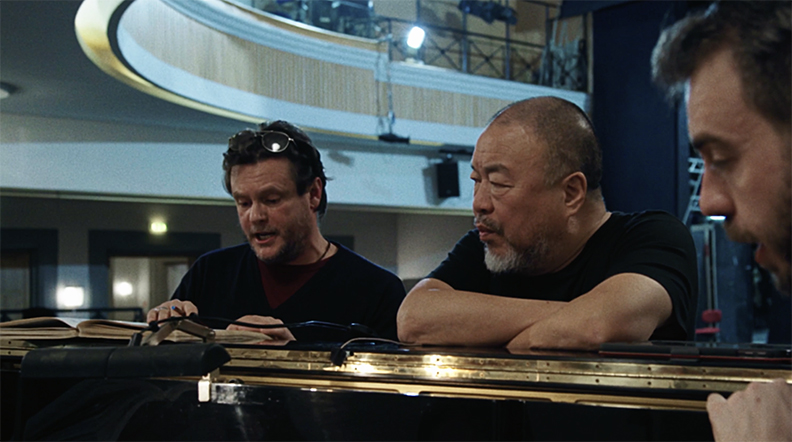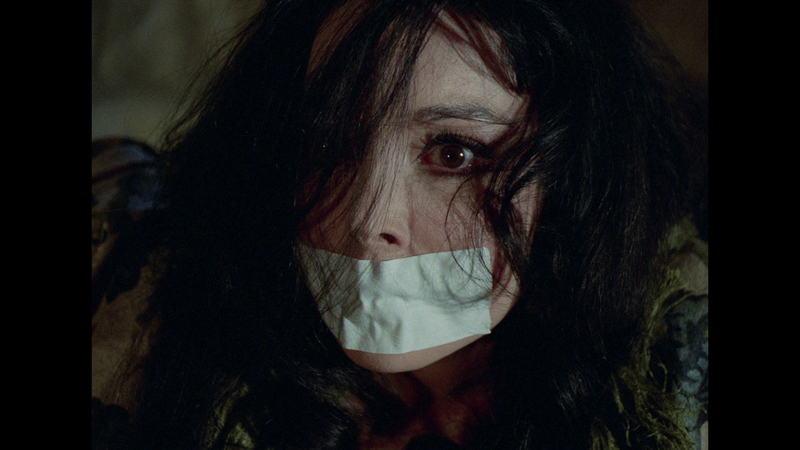
From Exile to Encore: a New Stage for Dissent
MOVIE REVIEW
Ai Weiwei's Turandot
–
Genre: Documentary, Art, Music
Year Released: 2025
Runtime: 1h 30m
Director(s): Maxim Derevianko
Where to Watch: shown at the 2025 Festival dei Popoli
RAVING REVIEW: There’s a moment in AI WEIWEI’S TURANDOT when art and activism stop being separate entities and merge into something entirely new, for Ai Weiwei, whose career has always been an act of rebellion, directing an opera feels both unexpected and inevitable. The artist who once dropped a 2,000-year-old urn in the name of challenging authority now orchestrates Puccini’s Turandot inside the Rome Opera House—turning one of Western culture’s grandest traditions into a living statement on censorship, humanity, and power.
Director Maxim Derevianko treats this project as more than behind-the-scenes documentation. The film unfolds like a dialogue between two generations of artists: one whose roots lie in old-world tradition and another whose every gesture defies convention. Derevianko’s personal link to the venue—his great-grandfather played first violin there a century earlier, and his mother danced as a prima ballerina—gives the film a quiet intimacy. That lineage meets Ai Weiwei’s radicalism head-on, as the camera observes an outsider reshaping the foundation of an art form long defined by hierarchy and order.
Puccini’s Turandot has always been controversial for its orientalist overtones, but in Ai Weiwei’s hands, it becomes something closer to a mirror. His staging floods the performance with contemporary imagery—refugees, war zones, pandemic lockdowns, and protests for democracy. The result isn’t just a retelling but a reckoning. The grandeur of the opera collides with the immediacy of real-world suffering, creating an uneasy harmony that forces audiences to see both the beauty and the brutality embedded in human civilization.
The documentary captures Ai’s process with remarkable patience. He approaches the production like an architect, layering visual symbolism and emotional truth until the boundaries between stage and statement blur. In his view, the opera isn’t merely a performance—it’s a platform for ideas too urgent to be contained by galleries or museums. His involvement in every aspect—from set design to costuming and projections—transforms Turandot into a living installation.
What gives the film its pulse, however, is Derevianko’s framing. He begins shooting in early 2020, as whispers of the pandemic begin to spread. Within weeks, theaters shut down, art exhibitions vanish, and Ai’s creative momentum is abruptly silenced. When the world stops, so does it. That interruption reframes the entire project: what began as a chronicle of artistic creation becomes a meditation on why art matters when everything else collapses.
Two years later, as the opera finally opens, it carries the weight of everything lost and everything learned. Ai Weiwei’s production emerges not as a triumphal comeback but as an elegy for resilience. His interpretation of Turandot no longer revolves around mythic riddles or romantic conquest—it becomes a cry for survival and the assertion of freedom through art. Derevianko’s lens captures this transformation with striking empathy, positioning Ai not as a provocateur seeking attention but as a man confronting the limits of his own endurance.
The film also gains resonance through the presence of longtime collaborator and choreographer Chiang Ching, who contextualizes Ai’s approach with personal warmth and artistic insight. Her reflections on how Turandot mirrors Ai’s life—its themes of defiance, sacrifice, and longing for understanding—give the documentary an emotional anchor. Beneath the spectacle lies the story of a man shaped by exile and loss, using every medium available to rebuild meaning.
By the time the opera finally premieres, Ai Weiwei has transformed both the production and himself. His earlier comment—“Did I know anything about putting on an opera? No, but I wasn’t going to let that stop me”—lands as both a joke and a declaration of purpose. The audacity that once made him a target of censorship now fuels his creativity, proving that the impulse to challenge power doesn’t fade with new mediums; it simply adapts.
The result is a film that asks deeper questions than it answers. What is the purpose of art when society shudders? Does beauty hold meaning when the world is fractured by war, disease, and inequality? Derevianko doesn’t attempt to resolve these contradictions; instead, he lets Ai Weiwei embody them. Every shot feels like an open question, every aria an act of resistance.
AI WEIWEI’S TURANDOT ultimately succeeds not because it documents a famous artist’s project, but because it understands the cost of creation. It’s a portrait of persistence, showing how art can endure even when institutions fail, governments are silence, and audiences vanish. For Ai Weiwei, opera becomes another battlefield—a place where imagination wages war against indifference. In the end, the documentary delivers exactly what both men seem to seek: proof that art, when stripped of comfort and confronted with reality, still has the power to speak truth to power. It’s not flawless—at times it drifts into reverence—but it remains alive with conviction.
Please visit https://linktr.ee/overlyhonestr for more reviews.
You can follow me on Letterboxd, Instagram, Twitter, and YouTube. My social media accounts can also be found on most platforms by searching for 'Overly Honest Reviews'.
I’m always happy to hear from my readers; please don't hesitate to say hello or send me any questions about movies.
[photo courtesy of GOYAVES, INCIPIT FILM, LA MONTE PRODUCTIONS]
DISCLAIMER:
At Overly Honest Movie Reviews, we value honesty and transparency. Occasionally, we receive complimentary items for review, including DVDs, Blu-rays, CDs, Vinyl Records, Books, and more. We assure you that these arrangements do not influence our reviews, as we are committed to providing unbiased and sincere evaluations. We aim to help you make informed entertainment choices regardless of our relationship with distributors or producers.
Amazon Affiliate Links:
Additionally, this site contains Amazon affiliate links. If you purchase through these links, we may receive a commission. This affiliate arrangement does not affect our commitment to honest reviews and helps support our site. We appreciate your trust and support in navigating these links.



Average Rating